Our CBD for sleep products, including CBD oil and terpene-infused options, are designed to enhance natural sleep and relaxation. CBD interacts with the body’s endocannabinoid system to regulate sleep patterns, while terpenes contribute to relaxation. Choose from pure CBD drops, broad spectrum, and full spectrum formats, each enriched with active ingredients known for their calming and sleep-inducing properties. Enjoy a restful night’s sleep with our carefully curated CBD sleep solutions.
Showing 1–24 of 48 resultsSorted by popularity
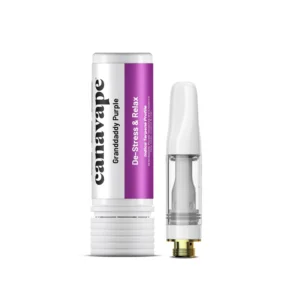

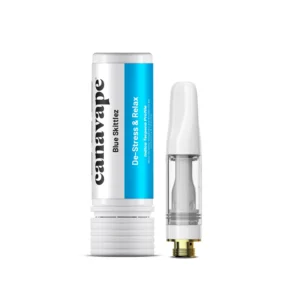
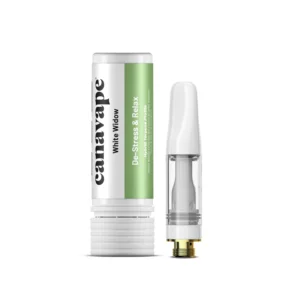

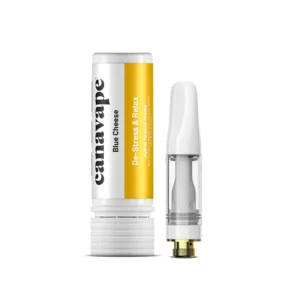

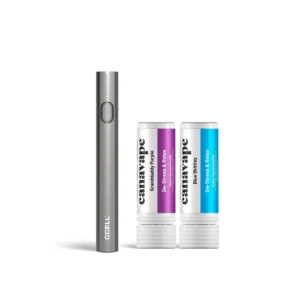
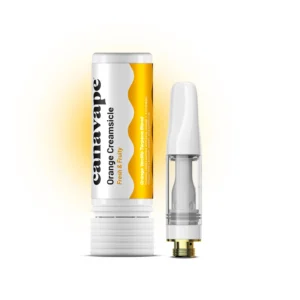


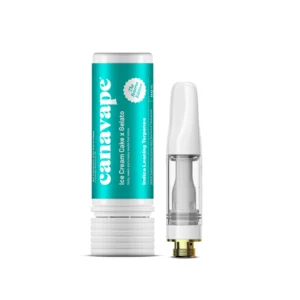

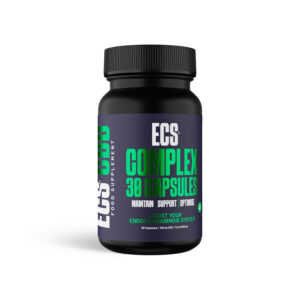

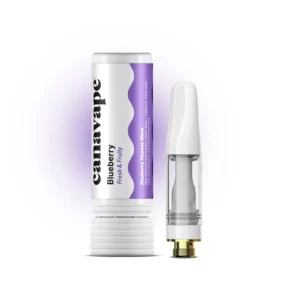

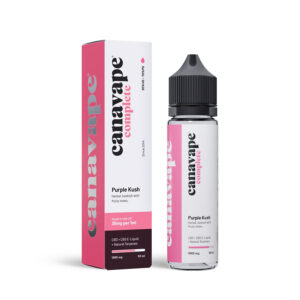


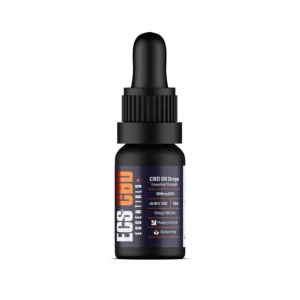
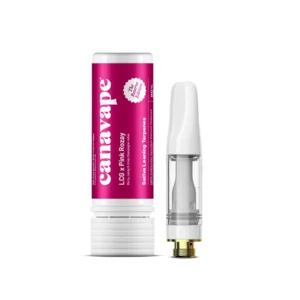
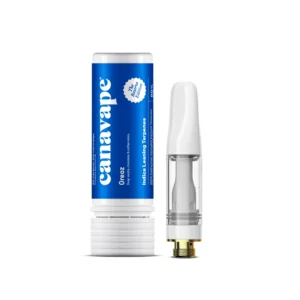
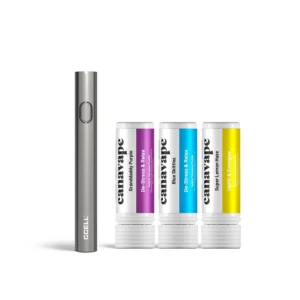
CBD for sleep has emerged as a popular topic of discussion, with many people exploring this natural remedy for its potential benefits in promoting restful nights.
Many are now turning to CBD as a natural sleep aid to support a healthy sleep cycle and improve sleep habits.
Cannabidiol, commonly known as CBD, is a compound derived from the cannabis plant that does not induce a high, unlike its counterpart THC.
As more individuals seek alternatives to traditional sleep aids, CBD for sleep is gaining attention for its purported ability to help with insomnia and improve overall sleep quality.
In this piece, we will delve into the science behind CBD for sleep, examine its effectiveness, and provide practical guidance on how to incorporate it into your nightly routine.
CBD, short for cannabidiol, is a natural compound found in the cannabis plant. As a cannabis sativa constituent, CBD is derived from the same plant as THC (tetrahydrocannabinol), but unlike THC, it does not have psychoactive properties and won’t make users feel high.
CBD interacts with the body’s endocannabinoid system, which plays a role in regulating various physiological processes, including sleep, mood, and pain perception.
This interaction is believed to be the key to CBD’s potential benefits. Available in various forms such as oils, capsules, and edibles, CBD is increasingly being used to address a range of health issues.
As research continues, our understanding of CBD’s mechanisms and benefits is expected to grow, offering more comprehensive insights into how this compound can be utilised effectively.
CBD works by interacting with the endocannabinoid system (ECS), a complex cell-signalling system found throughout the body.
The ECS is involved in regulating various functions such as sleep, mood, appetite, and immune response.
It comprises endocannabinoids, receptors, and enzymes. CBD influences the ECS by binding to and modulating the activity of its receptors, primarily CB1 and CB2.
Unlike THC, which directly activates these receptors, CBD has a more indirect effect.
It is thought to enhance the body’s ability to produce its own endocannabinoids, thereby promoting balance and homeostasis.
Additionally, CBD may influence other receptors and neurotransmitters, such as serotonin, which plays a significant role in mood regulation and anxiety.
This multifaceted interaction is key to understanding how CBD can potentially aid in improving sleep and alleviating conditions like insomnia.
CBD products come in a variety of forms, each offering unique benefits and methods of consumption. One of the most popular forms is CBD oil, which can be taken sublingually (under the tongue) for quick absorption.
Additionally, there are various CBD sleep products such as patches, gummies, and CBD gold drops CBD oil, which are designed to help support a healthy sleep cycle.
CBD capsules and tablets provide a convenient, pre-measured dose and are easy to incorporate into a daily routine.
Edibles, such as gummies and chocolates, offer a tasty way to consume CBD but may take longer to take effect due to the digestive process.
Topicals, including creams and balms, are applied directly to the skin and are often used for localized relief.
Vaping CBD provides rapid delivery to the bloodstream, though it’s not suitable for everyone due to the fact that not everyone is suited to vaping.
Each type of product has its own onset time and duration of effects, allowing users to choose the best option for their specific needs and preferences.
The science behind CBD for sleep revolves around its interaction with the endocannabinoid system (ECS) and other neural pathways that regulate sleep.
Studies suggest that CBD may help reduce anxiety, which is a common cause of insomnia and disrupted sleep.
By modulating the ECS, CBD can influence the body’s natural sleep-wake cycle aiding its natural state of homeostasis.
Additionally, CBD has been found to interact with receptors in the brain that govern the sleep cycle, such as the serotonin and GABA receptors.
These interactions can potentially increase sleep duration and improve sleep quality.
CBD and other ingredients like lavender can calm the central nervous system and reduce stress levels.
Research also indicates that CBD may reduce REM sleep abnormalities, which are often associated with conditions like PTSD.
Although more extensive clinical trials are needed, existing studies and anecdotal evidence provide a promising outlook on the efficacy of CBD in promoting restful sleep and alleviating insomnia.
Relevant animal studies also support the review of clinical data on the effects of CBD on sleep.
CBD for sleep offers several potential benefits that make it an appealing alternative to traditional sleep aids.
One of the primary advantages is its ability to promote a good night’s sleep by reducing anxiety and stress, which are common culprits behind insomnia.
CBD may also help reduce anxiety associated with poor sleep and insomnia.
By promoting relaxation and calmness, CBD combined can help prepare the mind and body for a restful night’s sleep.
Additionally, CBD may alleviate pain and discomfort, which can interfere with sleep quality.
Unlike some prescription sleep medications, CBD is generally well-tolerated and is not associated with dependency or significant side effects.
This makes it a safer option for long-term use.
Another benefit is the potential improvement in sleep cycles, particularly by increasing the duration of deep sleep stages, which are crucial for physical and mental restoration.
While individual experiences may vary, many users report waking up feeling more refreshed and alert after incorporating CBD into their nightly routine.
When it comes to CBD for sleep, several common concerns and misconceptions can deter people from trying it.
One major misconception is that CBD will make users high.
Unlike THC, CBD does not have psychoactive properties, so it won’t alter your state of mind. Another concern is the legality of CBD.
In many places, CBD derived from hemp with less than 0.2% THC is legal, but it’s always wise to check local regulations.
Some worry about the safety and side effects of CBD.
Generally, CBD is well-tolerated, with minimal side effects like dry mouth or drowsiness.
Another misconception is that all CBD products are created equal.
The quality and potency can vary widely, so it’s essential to purchase from reputable sources and check for third-party lab testing.
By addressing these concerns, individuals can make more informed decisions about incorporating CBD into their sleep regimen.
However, it is important to consult a doctor to avoid potential sleep disturbances when mixing CBD with other sleep remedies.
Choosing the right CBD product as a sleep aid involves considering several factors to ensure effectiveness and suitability.
Firstly, identify the form of CBD that best fits your lifestyle and preferences. CBD oil is versatile and can be taken sublingually for quick absorption.
Capsules offer a convenient, pre-measured dose, while edibles provide a tasty alternative but may take longer to take effect.
Topicals are less common for sleep but can be beneficial if local relief is also needed.
Secondly, check the product’s CBD concentration and ensure it matches your needs.
Beginners may start with lower concentrations and gradually increase as needed.
Thirdly, look for products that have been third-party tested for quality and purity.
This ensures the product is free from contaminants and contains the advertised amount of CBD.
Finally, consider any additional aspects that may enhance sleep, such as an
Indica terpene profile or other active ingredients, to further support your nightly routine.
Determining the right dosage and timing for taking CBD for sleep is crucial for achieving the best results.
Start with a low dose of cbd oils, such as 5-10 mg, and gradually increase it as needed.
The ideal dosage can vary significantly depending on factors such as body weight, metabolism, and the severity of sleep issues.
A general starting point is 15-30 mg of CBD, taken about 30-60 minutes before bedtime.
Gradually adjust the dosage based on your response, increasing it in small increments until you find the optimal amount.
It’s important to be patient, as it may take several days or even weeks to identify the most effective dose.
Timing also plays a role; taking CBD too late might not give it enough time to take effect, while taking it too early might cause drowsiness before you’re ready to sleep.
Keeping a sleep journal can help track your experiences and fine-tune both dosage and timing for the best sleep outcomes.
CBD is generally considered safe for most people, but it’s essential to be aware of potential side effects and safety considerations when using it for sleep.
CBD can calm the nervous system and alleviate anxiety-related disorders, contributing to better sleep quality.
Common side effects include dry mouth, dizziness, and changes in appetite or weight. These are typically mild and temporary.
It’s crucial to start with a low dose and gradually increase to minimise the risk of adverse effects.
Additionally, CBD can interact with certain medications, such as blood thinners or anti-seizure drugs, so it’s advisable to consult with a healthcare provider before starting CBD, particularly if you are on other medications.
Pregnant or breastfeeding women should avoid using CBD due to a lack of comprehensive safety data.
Always choose high-quality products from reputable sources to avoid contaminants like pesticides or heavy metals, which could pose health risks.
By taking these precautions, you can safely incorporate CBD into your nightly routine for better sleep.
Real-life testimonials and case studies provide valuable insights into the effectiveness of CBD for sleep.
Many individuals report using various CBD sleep products such as oils, gummies, and patches to improve their sleep patterns.
For instance, some users have shared that CBD helps them fall asleep faster and stay asleep longer, resulting in more restful nights.
Case studies have also highlighted CBD’s potential in reducing symptoms of insomnia and other sleep disorders.
For example, a case study involving a middle-aged woman with chronic insomnia found that regular use of CBD oil improved her sleep quality and reduced night-time awakenings.
These personal accounts, while anecdotal, support the growing body of scientific research on CBD’s benefits for sleep.
It’s important to remember that individual experiences can vary, and what works for one person may not work for another.
However, these testimonials and case studies offer compelling evidence of CBD’s potential to enhance sleep.
Experts in the fields of sleep medicine and cannabinoid research offer valuable perspectives on the use of CBD for sleep.
Many sleep specialists acknowledge the potential benefits of CBD for improving sleep quality and reducing insomnia symptoms.
Dr. Michael Breus, a clinical psychologist and sleep expert, has noted that CBD may help alleviate anxiety and pain, two significant barriers to restful sleep.
Similarly, Dr. Ethan Russo, a neurologist and cannabinoid researcher, suggests that CBD’s ability to modulate the endocannabinoid system can promote better sleep patterns.
However, experts also caution that more rigorous clinical trials are needed to fully understand CBD’s long-term effects and optimal dosages.
They emphasise the importance of using high-quality, third-party tested products to ensure safety and efficacy.
While the expert consensus is generally positive, the need for further research underscores the importance of making informed decisions when incorporating CBD into a sleep regimen.
When comparing CBD with other sleep aids, several key differences and advantages emerge.
Traditional sleep medications, such as benzodiazepines and sedative-hypnotics, are often effective but come with risks, including dependency, tolerance, and a range of side effects like grogginess and cognitive impairment.
In contrast, CBD is generally well-tolerated and is not associated with dependency, making it a safer option for long-term use.
Over-the-counter sleep aids, such as antihistamines, can also cause next-day drowsiness and are not designed for prolonged use.
Herbal remedies like valerian root and melatonin offer natural alternatives but may not work for everyone and can vary in effectiveness.
CBD stands out for its ability to address underlying issues like anxiety and pain, which can contribute to sleep problems.
While individual responses to sleep aids can vary, CBD’s multifaceted approach offers a promising option for those seeking a natural and holistic solution for better sleep.
When buying CBD for sleep, it’s essential to focus on quality to ensure safety and efficacy. Firstly, check for third-party lab testing when considering CBD oil drops.
Reputable brands will provide lab reports confirming the product’s CBD oil content and the absence of illegal substances like THC, CBN, THCv or synthetic adulterants.
Next, consider the source of the CBD. High-quality products typically use organically grown hemp to avoid exposure to harmful chemicals.
The extraction method also matters; CO2 extraction is considered the gold standard for producing pure and potent CBD.
Look at the product’s CBD concentration to ensure it meets your needs, especially if you’re new to CBD.
Additionally, check the ingredient list for any additives or preservatives, which should be minimal.
Some products may include other beneficial ingredients like melatonin or herbal extracts that can further support sleep.
By considering these factors, you can make an informed choice and select a high-quality CBD product for sleep.
When it comes to buying CBD for sleep, certain brands stand out for their quality, transparency, and customer satisfaction.
One highly recommended brand is ECS CBD, known for its high-quality, long established gold drops cbd oils & Complex capsules products derived from organically grown hemp.
Another reputable brand is NuLeaf Naturals, which offers potent, full-spectrum CBD oil with rigorous third-party testing.
For those seeking a blend of CBD and other sleep-supporting ingredients, many brands products include active ingredients such as terpenes to enhance their sleep-promoting effects.
In the USA, Green Roads is another top brand that offers a range of CBD products, including oils and capsules, with pharmacist-formulated options tailored for sleep.
Lastly, Joy Organics is praised for its broad-spectrum CBD products that are THC-free and third-party tested for purity and potency.
By choosing from trusted brands, consumers can feel confident in the quality and effectiveness of their CBD products for sleep.
When buying CBD for sleep, it’s crucial to be aware of legal considerations and regulations, which can vary significantly by country and region.
In the UK, CBD in food products is legal as long as it contains no more than 1mg of controlled cannabinoids eg. THC and is derived from an industrial hemp strain approved by the EU.
Novel food CBD products must also comply with specific labelling and safety standards.
It’s important to purchase CBD from reputable sources that provide third-party lab reports to verify compliance with legal THC limits and to ensure the product’s purity.
Additionally, consider that although CBD is legal, it’s only recently become regulated as a food supplement or medicine within the UK and the EU.
This means consumers need to exercise due diligence in selecting high-quality products.
Always check local laws and regulations before purchasing CBD, especially if you are travelling, to avoid legal complications.